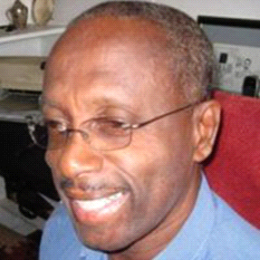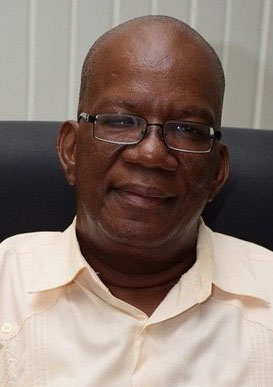With the Guyana Public Service Union (GPSU) rejecting the government’s “final offer” on public servant wages, the negotiations are likely to go straight to arbitration, according to former Labour Minister Dr Henry Jeffrey.
On Friday, the GPSU held a special General Council meeting at which 47 representatives of various public service agencies unanimously resolved to reject the government’s offer of a 10% to 1% differentiated salary hike for public servants.
Though the council has mandated that the union return to the bargaining table, the government had earlier signaled that it is unwilling to offer a larger increase as requested.


Contacted for comment on the union’s rejection of the final offer, Minister of Finance Winston Jordan, who was in New York, said that President David Granger had presented the government’s position and that at this point he had nothing to say beyond that which has already been said by the president.
President Granger, when asked on last week’s Public Interest television programme, broadcast Friday evening, if his government was prepared to make an arbitrary award of the proposed differentiated increase, responded, “the award we proposed is as much as we can do as of the first of September and we intend to proceed with that.”
The stated positions of the negotiating parties suggest that a deadlock has been reached. Under the collective bargaining process facilitated by a legally binding agreement between the government and the union for the Avoidance and Settlement of Disputes, once talks between the two sides have broken down, the Labour Department of the Ministry of Social Protection would oversee conciliation talks. If these talks fail, the process moves to compulsory arbitration.
The 1999 public service strike–the most serious in decades–was finally settled via the Armstrong Arbitration Tribunal.
However, Jeffrey, who was Labour Minister at the time of the strike, told Stabroek News yesterday that the precedent set in 1999 means that the two bodies can move straight to arbitration as the Ministry of Social Protection would face a conflict of interest in facilitating conciliation.
“Once the union and government have decided that there is a deadlock, the Ministry of Labour should conciliate as provided for in the agreement. However, in this case the government would be both the arbitrator and employer, which creates a conflict of interest as the Labour ministry is unlikely to facilitate an outcome that is not in the government’s interest so arbitration is almost certain,” he said.
Jeffrey explained that while the 57-day strike and establishment of the Armstrong Tribunal is most remembered, what could serve as a template is the experiences of the Guyana Teachers’ Union (GTU) during that same time.
Jeffrey wrote about the negotiations in a December 2011 column for Stabroek News, titled “GPSU: Take a Stand or wither away,” in which he reminded that after negotiations between the GTU and Ministry of Education failed, the matter went quickly to arbitration.
“The collective agreement gave the Minister of Labour the right to choose the chairperson of the three-person arbitration panel, while the disputants were required to nominate one member each. In that instance, the Ministry of Labour chose Fr. Malcolm Rodrigues as chairperson and the Ministry of Education and the GTU chose Dr. Gobind Ganga and Mr. Norman Semple respectively to consider the teachers’ demand for a 20% increase for 1999. After meeting for two months, the panel awarded a 10% increase for the year 1999 for all positions from Ts 1 to Ts 5 and 12% for all positions from Ts 6 to Ts 19,” he had said.
He had also noted that in the case of the public servants, “arbitration was not immediately grasped and the unions went on strike and the entire issue ended in even more acrimony after the arbitration tribunal, chaired by Dr. Aubrey Armstrong, gave the workers 31.06% for 1999 and 26.66% for 2000.”
Yesterday, Jeffrey expressed the hope that arbitration is considered much earlier this time, even though it essentially “takes your interest out of your hand.”
He noted that the public servants have long considered that the government owes them an “historic debt” and this, compounded with campaign promises of substantial increases, has made it impossible for the union to ask their members to accept a 10% increase.
He also recognised the recent reliance of the government on pronouncements from the International Monetary Fund (IMF) and explained that it is essential for macroeconomic stability to be considered in any offer made. “I’m certain that is what is influencing government’s decisions. While a significant increase will benefit the public servants, the overall inflation rate will increase. Both these things must have equal consideration,” Jeffrey said.









